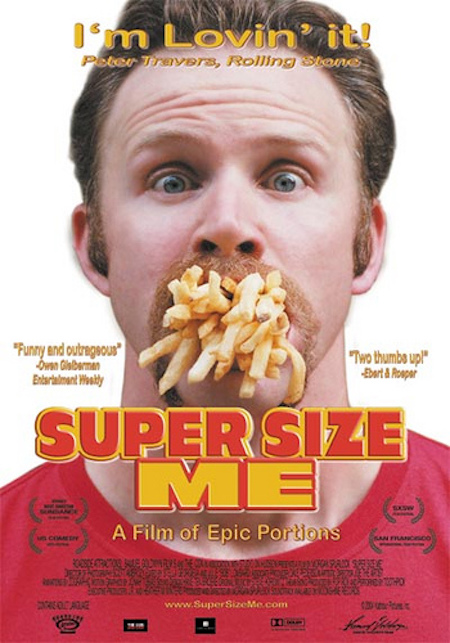Author’s note: When I wrote these pieces, I did not do the self-education that I needed to about some very problematic social justice issues in a pervasive culture of self-care. In the pieces I’ve written, I was not aware of how problematic and dangerous that white, privileged ideologies can be; and ally-ship includes taking responsibility for my role in the perpetuation of oppression, disentangling the toxicity of oppressive notions (especially in regards to healing), and bringing awareness to other white people to call out emotionally- and spiritually-bypassing culture
I wrote these articles with highly individualistic language, and cannot remove them according to Elephant Journal policy—but I hope that whoever decides to read them that has suffered from any marginalization or systemic oppression knows that I am committed to shifting rhetoric within my communities and am now involved in social organizing groups working towards a more rehabilitative and transformative culture.
~
There are periods of time when I fall off the self-care bandwagon—I’m talking weeks.
I think this is relatively common. Whether it’s due to circumstance, laziness, discouragement, the kids, or trauma, we often drift away from ourselves.
In the process, many of us self-medicate by obsessing about something, whether it be food, a person, our next drink, exercise (yes, I believe you can self-medicate by obsessively working out), smoking pot, or binge watching a TV show.
It’s extremely difficult to check in with ourselves at these times because these obsessions occupy so many of our thoughts and actions. Even if we have learned mindfulness tactics and awareness-raising tools to prevent falling into the hole of what I’ll refer to as “lack” (lack of self-care), we often find that these are extremely difficult to employ when we aren’t really feeling like ourselves.
I know what it’s like to tape a self-care protocol on my dresser only to duck every time I walk by it after four days have passed.
On a day that I’ve followed the plan, I’ll have made sure to moisturize my skin, move my body for 30 minutes, cook at least one of my meals, read something for pleasure, and stay off social media in the morning and at night. I’ll have made sure to go outside, listen to at least one song without distractions, and write a little bit.
However, all of this combined realistically takes me about two hours. Many of us would rather flop on the couch than spend two hours on deliberate self-care each day.
When we start realizing we don’t have the energy to do all of this every single day, many of us stop entirely because we feel it’s all too daunting. Black-and-white thinking can set us up for failure—thoughts like, “Well, I didn’t make it to the gym today, so I may as well finish the entire chocolate bar.”
So while it feels great to be able to take care of ourselves, it can also be the most difficult thing in the world when we have work to do, families to tend to, or baby laundry to fold. But in my experience, none of these things are really the problem. I simply have a hard time keeping up with my own well-being and continuing to check in with how I’m feeling.
The reason is that this process of self-management means we actually have agency over the decisions we make. In checking in with ourselves, we widen the gap between stimulus and response, experience the pain that is our growth, and figure out how to maintain and foster our own well-being.
It’s a lot of feeling and doing—and it isn’t easy.
Particularly in today’s America, we have to constantly remind ourselves of how much easier it is to battle and hurt our bodies than it is to take care of them. Foods that give us diabetes and cancer are cheaper to buy and quicker to make. The ease of transportation has us walking way less frequently, and oftentimes requires that we go outside for only a few seconds.
Unfortunately, the majority of people tend to rely on these foods and adopt sedentary lifestyles because it’s easier to do so. The prevalence of these choices undoubtedly influences our perception of what is okay for ourselves. If we see our roommates staying home all day, it feels okay for us to do so as well.
This “lack” is oftentimes a cycle. The lack itself leads us into a spiral of anxious and depressive symptoms. And when we’re in this energetic state, the last thing we want to do is go to a yoga flow class or to meet up with friends, to cook or to groom ourselves.
When I’m in this state, I don’t even want to go outside.
However, the truth of the matter is that we allow ourselves this lack because we’re getting something out of it. When I truly think about it, anytime I slack and then become depressed, it means I don’t have to exercise or cook my meals or respond to e-mails. I don’t have to put in the work.
But for the sake of happiness, putting in that work is necessary. I’m not saying we choose depression—no one would—but I believe many of us who suffer with it may be unwittingly choosing the path that takes us there.
My mentor taught me about something called contrary action. She told me that doing the exact opposite of what we feel like doing can shift us into a completely different state.
Reaching that state, for many of us, will feel like a struggle, perhaps for weeks on end. Eventually, though, we’ll realize how good it makes us feel.
Contrary actions are particularly important when we’ve slacked off that day. I’ll refer back to my exercise example. Just because we want to finish the chocolate bar because we feel like we’ve screwed up, the contrary action of putting it away will foster more self-empowerment.
If we slack a bit, it doesn’t mean we give up altogether—because we’re not working toward some end goal. We’re doing it to maintain happiness. If we become okay with the days that we slack and don’t worry about “making up for it,” but rather change our perception of why we practice self-care entirely, we’re less likely to fall into a period of no self-care at all.
A lot of the times when I fall off the self-care flow and begin experiencing these anxious and depressive symptoms, I reach out for guidance from loved ones, and I’ve often been told that I’m in the middle of a transition and to not worry. “Maintenance is harder in transitory periods.” But if so, has my entire life been a transition?
Intrinsic to everyone’s purpose on this planet is to learn to set boundaries with others, and ourselves. And when I realized that I have difficulty setting boundaries in my life in general, I understood the source of my lack.
Maybe setting boundaries means establishing a bedtime or only using social media for a specific amount of time each day. Maybe it means to stop eating when we’re full or to make sure to eat when we’re hungry. Maybe it means that we make sure we go outside for at least a half hour every day.
Whatever these boundaries are, some of us need to work a bit harder to fix them. Not correct them, but fix them—hammering them into place so that when times get tough, we don’t forget ourselves and fall, but instead stand in the trust that we have boundaries that will catch us.
The deeper sense of purpose in our lives is harder to reach if we can’t get past the smaller tasks required of us on the surface. So it might not seem like waking up early or shaving or cleaning the dishes or making the bed mean much, but I believe they can make the difference between maintaining our sense of purpose or feeling like we have none at all. I also believe these acts of self-care can become a spiritual practice if done with a sense of gratitude for being able to do them in the first place.
What was required for survival hundreds of years ago is what we consider self-care to be now. Our ancestors didn’t sit behind a screen all day to work and stick a plastic container in the microwave to eat. Our ancestors soaked in sunlight and moved their bodies and ate to live. This is how many indigenous tribes live, and it’s no coincidence that they’re so spiritually in tune.
Self-care might be harder for our generation because it’s not required of us to survive—as I’m sure many of us know, we can get by with cars and TV and frozen dinners—but I believe it is required of us to truly live.
It might just take an extra psychological push to get us to maintain our own practice.
~
Author: Gabrielle Dominique
Image: Guarav Mishra/Flickr
Editor: Callie Rushton









Read 0 comments and reply